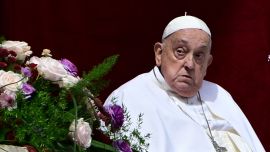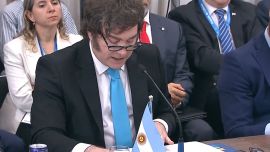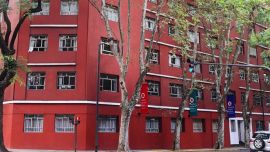President Evo Morales announced his resignation in a televised statement on Sunday night, barely an hour after the commander of the country's Armed Forces asked him to resign "for the good of our Bolivia."
In a speech, Morales defended his record, highlighting the achievements of his near-14-year presidency. He said that he had chosen to resign to bring an end to violence, criticising his presidential rival and a key protest leader on pressuring his allies.
"I am resigning so that my brothers and sisters and leaders of the Movement to Socialism [party] do not continue being persecuted. I am very sorry for this civic coup and some part of the Police," he said, describing events as a "civic coup" that involved "some parts of the police."
"My sin is to be a union leader, to be indigenous, to be a cocalero [coca-grower]," he said.
Vice-President Álvaro García Linera said in his speech that "we have made this decision so that they do not mistreat more families."
"Dark forces have destroyed democracy," Morales added. "These anti-democratic forces want to destroy all the achievements of these years."
Infobae reported that President Mauricio Macri's administration had made it clear to Morales and other Bolivian officials that he would allow them to take political asylum in Argentina if they wished to flee the country.
Escalated
Events in Bolivia have escalated dramatically over the last 48 hours, with government officials, sections of the police force and now the Army distancing themselves from Morales. The development comes after the leftist leader had said he would hold another election. Local reports said Morales no longer controlled the police, as of Friday.
Speaking earlier in the day, Morales, Bolivia's first president of indigenous descent, promised new elections under the direction of a revamped Supreme Electoral Tribunal in a televised address. But crucially, he did not say whether he would run again as a candidate.
South America's longest-serving leader made that announcement after a preliminary report by the Organisation of American States found a "heap of observed irregularities" in the October 20 presidential contest and said a new vote should be held.
With no sign of violent protests abating, the commander-in-chief of the Armed Forces, General Williams Kaliman, told reporters on Sunday evening he was asking Morales "to resign his presidential mandate."
"After analysing the conflicted domestic situation, we ask the president to resign his presidential mandate to allow for pacification and the maintaining of stability, for the good of our Bolivia," General Williams Kaliman told reporters.
Speaking on national television, Kaliman also appealed to Bolivians to desist from violence. He added that the Armed Forces had ordered "military operations in the air and on land to neutralise Armed groups that are acting outside the law."
The commander of the police, General Vladimir Yuri Calderon, also called on Morales to step down.
With pressure building, the Bolivian leader decided to heed the call and step down as president.
Protests
There were signs of disarray among Morales supporters, with the head of the lower Chamber of Deputies and the ministers of mines and of hydrocarbons announcing their resignations. Two of those resigning cited risks to their families after mobs attacked their respective houses in the city of Potosí.
Protests have flared across Bolivia since Morales was declared the winner of the October 20 election, beating his nearest rival, centrist Carlos Mesa, by just enough to avoid a second round.
Morales, 60, became the first president from Bolivia's indigenous population in 2006 and presided over a commodities-fed economic boom in South America's poorest country. The former leader of a coca growers union, he paved roads, sent Bolivia's first satellite into space and curbed inflation.
But some who were once excited by his fairy-tale rise have grown wary of his reluctance to leave power. He ran for a fourth term after refusing to abide by the results of a referendum that upheld term limits for the president. He was able to run because Bolivia's Constitutional Court disallowed such limits.
After the October 20 vote, Morales declared himself the outright winner even before official results indicated he obtained just enough support to avoid a run-off with Mesa. A 24-hour lapse in releasing results fuelled suspicions of vote-rigging.
Buckling under mounting pressure, Morales on Sunday called for a new election. South America's longest-serving leader made the announcement after a preliminary report by the Organisation of American States found a "heap of observed irregularities" in the October 20 presidential contest and said a new vote should be held.
An audit of the election found "irregularities that range from serious to indicative," in virtually every area reviewed -- in the technology used, the chain of custody of ballots, the integrity of the count, and statistical projections.
"This leads the technical auditing team to question the integrity of the election results," the report on their preliminary findings said.
OAS Secretary General Luis Almagro said the results giving the leftist leader a fourth term in office "must be annulled and the electoral process must begin again."
The unrest that has left three people dead and over 100 injured in clashes between supporters and opponents of Morales represents the biggest crisis in the socialist leader's nearly 14 years in power.
"We all have to pacify Bolivia," Morales said in announcing plans to replace the nation's electoral tribunal and urging the country's political parties to help bring peace.
–


























Comments